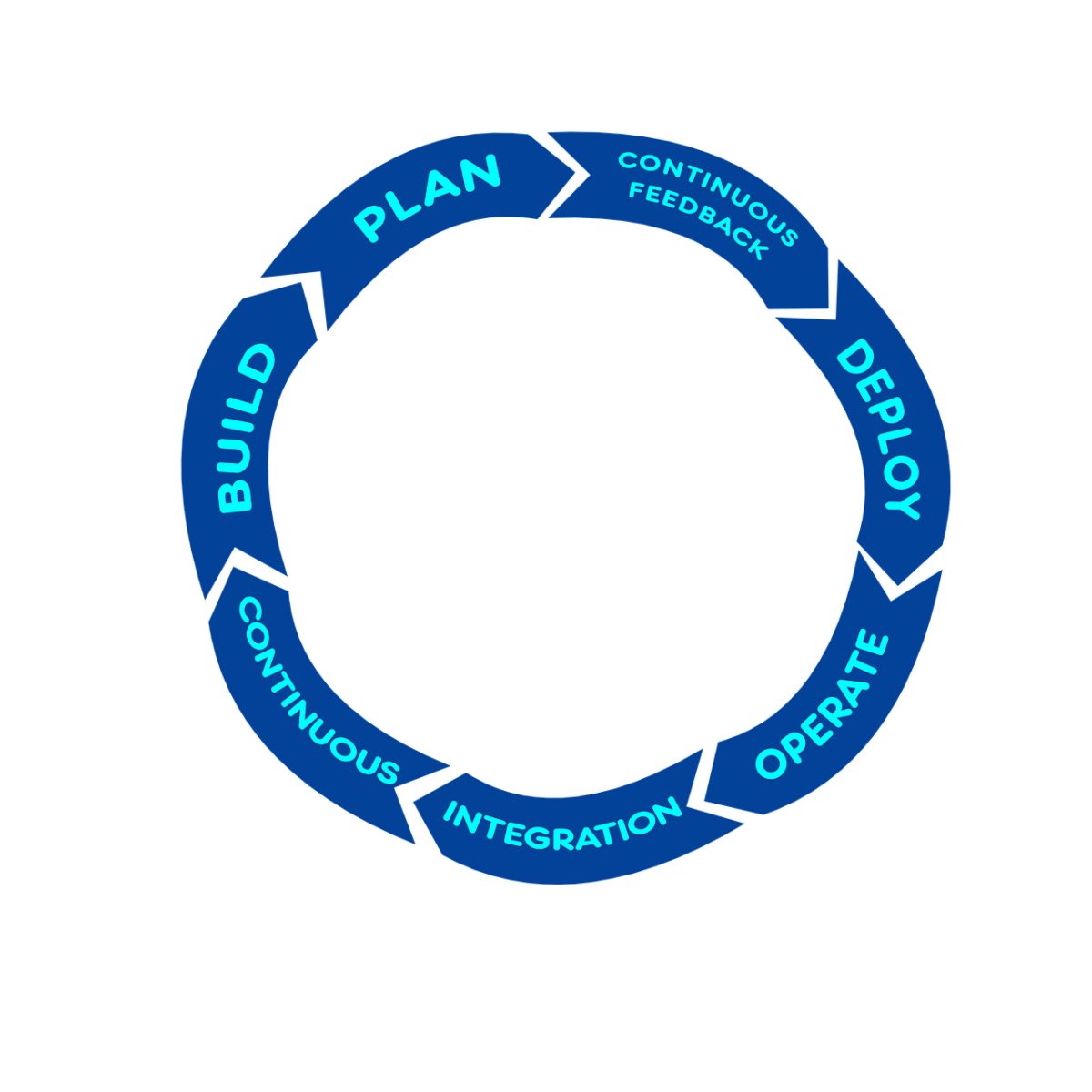In software development projects, collaboration is a crucial aspect. Teams working closely on a project can bring more productivity, fast turnaround, and improved quality.
But how can IT project managers remain agile while delivering value to customers? DevOps is one solution.
Teams with DevOps services can work together, sharing knowledge and taking responsibility for driving quality.
In this article, we will explore the principles of DevOps and how it improves collaboration.
The Importance Of Collaboration in DevOps: Driving Success through Unified Efforts
DevOps practices require collaboration to succeed. 77% of organizations say they rely on DevOps to deploy software or plan to shortly.
The following are some reasons why collaboration is crucial
Streamlined Software Development Process
Team collaboration ensures a smooth workflow between development and operations teams.
Faster Time-to-Market
When DevOps teams collaborate, bottlenecks can be eliminated, leading to faster software delivery and new features.
Enhanced Product Quality
Early detection and resolution of issues improve product quality and customer satisfaction.
Improved Communication and Coordination
Collaboration facilitates open communication and coordination between different teams, ensuring everyone is aligned.
Efficient Issue Resolution
Collaboration facilitates identifying and resolving issues and bugs, leading to faster troubleshooting.
The Principles Of DevOps
DevOps improves collaboration through several principles that promote efficient workflow.
Let’s explore some of these principles briefly:

Continuous Integration
This practice involves merging code changes frequently into a shared repository. It allows teams to detect integration issues and promotes collaboration by ensuring a common codebase.
Continuous Delivery
It focuses on automating the deployment process to achieve frequent and reliable software releases. It enables teams to collaborate effectively by providing a streamlined and automated workflow.
Infrastructure as Code
It treats infrastructure provisioning and management as software development. This principle allows teams to collaborate on infrastructure changes and version them, ensuring consistency and reproducibility.
Key DevOps Services and Collaboration Improvement
To support DevOps collaboration, various services and tools are available.
Let’s explore some of the key DevOps services and how they enhance collaboration:
Source Control Management
Teams can collaborate efficiently on code development using source control management tools like Git, GitHub, Bitbucket, and GitLab.
Using these tools, developers can simultaneously work on the same codebase, track changes, and resolve conflicts.
Continuous Integration and Continuous Deployment
CI/CD tools such as Jenkins, Travis CI, CircleCI, and GitLab automate the build, test, and deployment processes. These tools foster collaboration by frequently integrating code changes and automatically deploying them, ensuring everyone works with valid and current code.
Infrastructure As Code
Infrastructure as Code (IaC) tools like Terraform, Ansible, Chef, and Puppet enable teams to manage infrastructure changes programmatically.
These tools allow collaboration in defining and versioning infrastructure configurations, making reproducing environments easier and promoting consistency across teams.
Monitoring and Logging
ELK Stack (Elasticsearch, Logstash, Kibana), Prometheus, and Grafana provide real-time insights into system performance.
These tools enable collaborative troubleshooting, proactive issue resolution, and continuous improvement by sharing this information with the team.
Communication and Collaboration Tools
Slack, Microsoft Teams, Jira, and Trello facilitate seamless communication and task management between team members.
These tools provide channels for discussions, notifications, and documentation, fostering collaboration across different teams and disciplines.
Implementing a Team-Driven DevOps Culture
To embrace a team-driven DevOps culture, organizations should consider the following practices:
- Create multidisciplinary teams that include members from development, operations, quality assurance, and other relevant areas.
- Encourage teams to experiment with new ideas and technologies.
- Establish feedback mechanisms within the team and with stakeholders.
- Regular retrospectives, one-on-one discussions, and feedback sessions help identify areas for improvement and strengthen collaboration.
- Conduct blameless postmortems to understand the root causes and identify preventive measures.

Challenges And Solutions In Adopting A Team-Driven DevOps Approach
Implementing a team-driven DevOps collaboration approach can come with its challenges. Some common challenges and their solutions include:
Resistance To Change
Educate team members about the benefits of DevOps and involve them in the decision-making process. Training programs and workshops can help build skills and confidence.
Siloed Teams And Lack Of Collaboration
Encourage cross-functional collaboration through joint planning sessions, shared goals, and knowledge-sharing sessions. Foster a culture where teams work together towards a common objective.
Ensuring Security And Compliance
Implement security and compliance measures as part of the DevOps process. Involve security and compliance teams early in the development lifecycle and automate security checks wherever possible.
Solutions
Training, executive buy-in, and continuous improvement
Conclusion
With a little planning, teams can effectively use DevOps services to streamline collaboration and communication, helping them improve the workflow. A unified, team-oriented approach is essential for productivity and results.